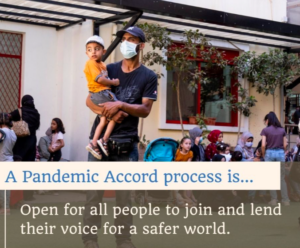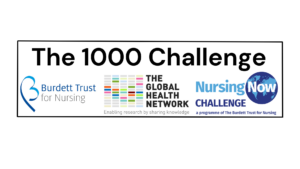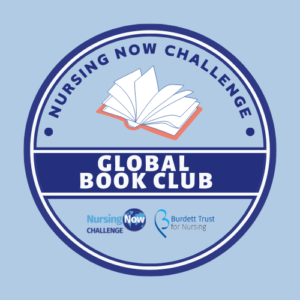“I know what I stand for and now have confidence in the contribution I make to nursing”
This blog was written by Catelyn Richards MACN ENL
Much of the lead-up to graduating from nursing training is bursting with anticipation and a frenzied hurry to ensure you are “industry-ready.” Amid polishing off final year assignments (performing at your highest academic peak in the course), juggling placement schedules and bolting to three part-time jobs – little work is done on your emotional preparation for what awaits you in clinical settings. In other words – my Nursing degree only directed me to a certain point. It got me the registration
and a position working as a nurse. It taught me to be ready for both of those things.
But does growth as a nurse end when you graduate and land your ideal position?
The answer is, of course, no, it doesn’t. Ultimately, however, your personal and professional growth is your own responsibility. As an early-career nurse, this is somewhat daunting. Your transition from the reliable structure that university provides to operating as an early-career professional in an industry that is emotionally volatile. In my first year of practice, I had more questions opening up in me than those that were answered. The greatest of them all: is this what I want to do for the rest of my life?
I start with this example because it is absolutely vital to understand the emotional landscape of an early-career nurse – prior to involvement in the Emerging Nurse Leader (ENL) programme. I also believe it is a pertinent example because it paints a foundation that leadership is separated from career growth. While career growth has been a fantastic outcome of the programme, this is merely symptomatic of deeper inner growth that resultantly attracts opportunities. The programme first and foremost, enables a discussion on who you are, and what you want. And much of this inner work takes stepping back and reflecting on where we have come from.
With this context in mind, I found that while my hospital was very proactive in supporting the development of early-career nurses – it had very specific ways that it envisioned career progression. These specifically tailored pathways did not always fit the trajectory I wanted to follow. Though I loved the specialty I was practicing in, I wasn’t sure if it was where I would practice for the duration of my career. In contrast, the ENL programme was a self-driven programme that provided structure for young professionals who identified as emerging leaders and wished to propel themselves forward. It was not tied to the constraints of any one healthcare organisation.
To strip it back simply: the ENL programme is divided into three domains:
- Professional Engagement
- Australian College of Nursing (ACN) Member Mentoring for ENLs programme
- Professional Development
Under each domain are a series of activities that form a ‘blueprint’ for enabling leadership growth in nursing. Examples of these would include things like, participating in profession-specific volunteer activities, participating in the ENL Journal Club and discussion forum (online) and submitting abstracts to present at conferences (among others). Each activity completed by the ENL would attract ‘points,’ with the target being to accumulate enough points to qualify as having completed the programme. Each ENL underwent a competitive selection process – resulting in a cohesive collective of inspired, ambitious and enthusiastic nurses actively driving progression in their workplace. Given that the programme is self-driven, there is a degree of autonomy and choice for the ENLs to pursue the activities that they most identify with. For me, at each stage of the programme, the activities that held the most value were the opportunities that provided for mentoring, networking and learning. This meant that over the five years that I was involved in the programme, I built relationships with the most inspirational mentors: Adam Burns (Principal Project Officer, Queensland Health), Sandy Eager (Nurse Manager, Refugee Health Services NSW) and Claire Morley (Nursing Director – Nursing and Midwifery Excellence Tas). These mentors challenged me to wholly engage with the transition into leadership and to hold the difficulty of leadership with reverence. I had many charged conversations with my mentors imagining not only my future but also the future for all nurses.
When it came to networking, the ACN network is divided into regions (geographical) and communities of interest (special interest groups). I also fell into the ENL cohort. This meant that I was involved in multiple communities where I had opportunities to bounce ideas off my colleagues, to learn from them, to share challenges and setbacks and to remind me that I was not alone. I have met people through the programme that are among my closest friends and whom I know will be future leaders in nursing.
In 2019, after a setback that really rattled me, I reached a point where I no longer believed I was a leader. Even in my most extraverted of years – I was not the person in the room who commanded the room. While I was comfortable public speaking, I was never the person who spoke first. Or the loudest. I did not care for titles. I did not wish to chase a social media presence. In 2019 I started to question that perhaps I had perhaps been a ‘phony’ leader all along. I’d completed leadership training, but could I actually lead. I remember this year really clearly because in many ways I really needed this period of my life to feel confident in who I was. I remember having a conversation with one of the ACN leadership support staff at the time. She emphatically encouraged me that while my leadership style may not take me to the most focal part of the room, my beliefs and values distinguished me as someone more attuned to servant leadership. Upon researching further on what this meant I stumbled across the core principles of this style: Encourage diversity of thought, create a culture of trust, have an unselfish mindset and foster leadership in others. While I so ardently identified with these principles already, they also simultaneously became the pillars of the leader that I strive to be. When I am faced with difficult decisions, I return to these. They ground me. They hold me accountable. They remind me that leadership is not a one-size-fits-all. I can’t honestly say whether I would have eventually stumbled upon this outside of the programme, but I can say that this is just one example of the many gold moments that have made up my ENL experience. Sometimes, you don’t even know what you were looking for – until someone places it in front of your eyes.
I am now finishing my final year in the programme, and I feel swells of both pride and nostalgia. In these years I’ve presented at national and international conferences, met the Chief Nurse to the World Health Organization, contributed to eleven published articles and transitioned from a Grade Two position to a Grade Five nursing position in just five years. Alongside this, and more importantly – I know myself. I know what I stand for and now have confidence in the contribution I make to nursing. I know that the ENL programme is unique and powerful. I feel so lucky to have been a part of the programme, and to have been shaped by this programme. I wholeheartedly believe that this is one of the ways that we create engagement in the profession and look forward to seeing the leaders that arise through the programme in future years.
“When we have the courage to walk into our story and own it, we get to write the ending”- Brene Brown.




